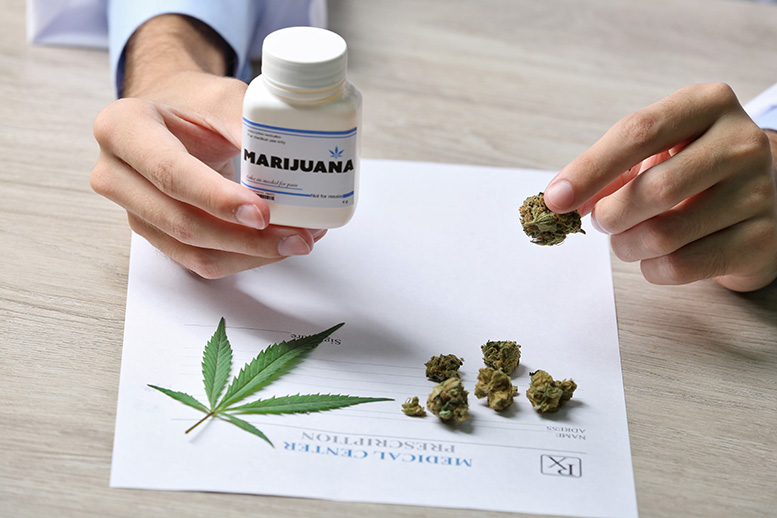Industry Insights
Sharing, learning and discussing topics around IME's
Marijuana for Medical Purposes: What We Know and Don’t Know

With the advent of recent government legislation Medical Marijuana is becoming a much more mainstream topic. The number of clients registered with Health Canada to use medical cannabis has grown. At the end of June, 2016 there were 75,166 registered clients under the medical marijuana regime, according to Health Canada’s website. That’s up 40 per cent from the previous quarter, when there were 53,649 clients, and more than triple the number from a year ago when only 23,930 people had registered to receive the drug.
As a result, with numbers growing so dramatically it is no surprise that retailers are starting to take notice; in fact, Shoppers Drug Mart recently submitted an application to distribute medical marijuana and when a retailer of this magnitude begins to legally dispense marijuana this serves to further legitimize the practice in the public’s eye and it is inevitable that usage rates will continue to increase exponentially.
There are many questions surrounding the use of medical marijuana. While Shoppers Drug Mart is claiming that having their trained Pharmacists dispense cannabis would improve patient care, some industry players are concerned they don’t have the training and expertise required to effectively distribute the drug. The increased regulation could also result in higher prices and potentially fewer strains available due to the standardization that would be required. Just like any drug, patients react differently to different strains and Mark Zekulin, President of licensed producer Canopy Growth Corporation, said it would be vital that pharmacists are educated about the drug if they’re going to sell it in stores.
“What if you show up at the pharmacy for assistance … and they haven’t been properly trained and they’re not necessarily engaged in understanding the product? You end up ultimately with a disservice,” Zekulin said.
However, beyond the dosage, strain, and dispensing concerns insurers and employers will need to quickly come to a greater understanding of the impact of insureds/employees undergoing this treatment protocol. Generally accepted guidelines state:
Patients taking dried cannabis should be advised not to drive for at least:
- Four hours after inhalation
- Six hours after oral ingestion
- Eight hours after inhalation or oral ingestion if the patient experiences euphoria
Cannabis use prior to driving is an independent risk factor for motor vehicle accidents. Patients should be advised not to drive for a minimum of four hours after inhalation or a minimum of six hours after oral ingestion; they should abstain from driving for a full eight hours if they experience euphoria and the ability to drive or perform activities requiring alertness may be impaired for up to 24 hours following a single consumption.
Human rights and arbitration case law in Canada has been geared to deal with workplace alcohol and drug testing in the context of safety-sensitive positions and dangerous work environments. Employers are required to balance the Code with employees’ rights to privacy. Because of the potential to intrude on people’s privacy, drug and alcohol testing can only be justified in very narrow circumstances – where there are health and safety concerns in dangerous work environments in which people are doing safety-sensitive work. In a Supreme Court of Canada case involving Irving Pulp and Paper Ltd., the Court held that while the dangerousness of a workplace is highly relevant, evidence of enhanced safety risks, such as evidence of a general problem with substance abuse in the workplace, is also required.
What must be considered is impact on the aforementioned precedent now that treatment is legal, becoming increasingly prevalent, and employees have a right to work if medical marijuana is deemed the most appropriate treatment option for their medical condition?
It is not debated that medical marijuana use can impact an employee’s ability to perform a job with inherent risk to themselves and/or those around them and the consequences that may occur as a result of workplace accidents and/or mistake.
There are many questions surrounding this issue and it must be noted that employees are entitled to seek use of medical marijuana to ease disability-related symptoms as a form of workplace accommodation and this could happen whether employees are in safety-sensitive positions or not. Currently, the employer has a duty to take these accommodation requests in good faith, and meet its duty to accommodate to the point of undue hardship. However, because of the potential health and safety risks involved, it may amount to undue hardship to accommodate people using medical marijuana at work while they are in safety-sensitive positions.
In summary, it is evident that there is currently many unknowns surrounding the increased usage of medical marijuana and Benchmark IME is monitoring current developments closely as they continue to unfold
*All information available in accessible formats upon request.



